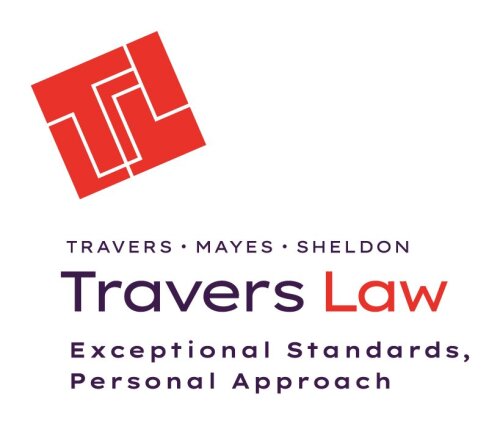Best Nursing Home Abuse Lawyers in Waterloo
Share your needs with us, get contacted by law firms.
Free. Takes 2 min.
List of the best lawyers in Waterloo, Canada
About Nursing Home Abuse Law in Waterloo, Canada
Nursing home abuse refers to harm or mistreatment experienced by elderly or vulnerable residents within long-term care facilities or retirement homes. In Waterloo, Canada, such mistreatment can take many forms, including physical, emotional, financial, sexual abuse, or neglect. Residents in these settings are protected under both provincial and federal laws aimed at ensuring their safety, dignity, and rights are upheld. Recognizing the signs and understanding how the law can help is crucial for both residents and their loved ones.
Why You May Need a Lawyer
Obtaining legal advice is often crucial when navigating issues of nursing home abuse. Common situations where a lawyer becomes especially important include:
- Suspicions or evidence of physical or emotional abuse
- Discovery of financial exploitation or theft
- Instances of neglect, such as poor hygiene, malnutrition, dehydration, or untreated medical needs
- Investigation or complaints against a care facility or its staff
- Difficulty accessing records or information about a loved one’s care
- Pursuing compensation or seeking accountability for harm caused
- Facing threats or retaliation from facility staff after raising concerns
Lawyers experienced in nursing home abuse cases can help families understand their rights, gather evidence, deal with regulatory and police investigations, mediate conflicts, and pursue legal claims on behalf of residents.
Local Laws Overview
In Waterloo, Ontario, strict laws regulate nursing homes, also known as long-term care homes. Key legislation includes:
- Fixing Long-Term Care Act, 2021: Outlines rights of residents and sets mandatory standards for care, safety, and staff conduct in all long-term care homes across Ontario.
- Residents’ Bill of Rights: Incorporated into Ontario law, this details the fundamental rights of each resident, including the right to be treated with courtesy and respect, free from abuse and neglect.
- Mandatory Reporting: Healthcare workers, facility staff, and even visitors are legally required to report reasonable suspicions of abuse or neglect to relevant authorities, such as the Ministry of Long-Term Care or police.
- Inspections and Enforcement: The Ministry routinely inspects nursing homes and investigates complaints. Facilities may face penalties or loss of licence for noncompliance.
- Civil and Criminal Actions: Victims and families can pursue lawsuits for damages. Serious abuse may also result in criminal charges against individuals involved.
These laws are designed to provide mechanisms of protection, ensure accountability, and offer avenues for redress when abuse is suspected or confirmed.
Frequently Asked Questions
What qualifies as nursing home abuse in Waterloo?
Nursing home abuse can include physical harm, emotional or psychological distress, financial exploitation, sexual abuse, or neglect (failure to provide adequate care, food, or medical attention).
How can I recognize signs of abuse or neglect?
Common signs include unexplained injuries, changes in behavior, withdrawal, poor hygiene, weight loss, bedsores, missing personal belongings, or anxiety around specific staff members.
Who do I report nursing home abuse to in Waterloo?
You can report concerns to the Ministry of Long-Term Care, the Home and Community Care Support Services Waterloo Wellington, or to local police if you believe a crime has occurred.
Am I legally required to report suspected abuse?
Yes. Anyone who suspects abuse or neglect in a long-term care setting in Ontario is required by law to report it to the authorities.
Can I sue a nursing home for abuse or neglect?
Yes. Victims and their families may file civil lawsuits to claim damages for abuse, neglect, or injury suffered due to inadequate care or mistreatment.
What evidence is helpful when making a claim?
Documentation such as photographs, witness statements, medical records, diaries of events, and communication with staff or management can all support your case.
Is there a time limit to start a legal case?
Yes. Ontario generally has a two-year limitation period from the date the abuse was discovered to initiate legal action, though exceptions may apply in certain situations.
Can a resident be transferred or retaliated against for making a complaint?
Retaliation against residents or families who report abuse is strictly prohibited by law. Facilities may face severe penalties if reprisal occurs.
How are nursing homes investigated in Ontario?
The Ministry of Long-Term Care conducts inspections in response to complaints or as part of regular oversight. Additional investigations may involve police if criminal activity is suspected.
What are possible outcomes if abuse is confirmed?
Outcomes may include disciplinary action, fines, criminal charges against individuals, changes in management, increased monitoring, or facility closure. Victims may also receive compensation through civil proceedings.
Additional Resources
Several organizations and governmental bodies provide support, information, and intervention related to nursing home abuse in Waterloo:
- Ministry of Long-Term Care (Ontario): Regulates and inspects long-term care homes, investigates complaints.
- Waterloo Regional Police Service: Handles reports of criminal activity, including suspected elder abuse.
- Advocacy Centre for the Elderly (ACE): Provides legal information and advocacy for seniors on issues relating to abuse and long-term care.
- Home and Community Care Support Services Waterloo Wellington: Offers advice, resources, and help in accessing local health and long-term care services.
- Victim Services of Waterloo Region: Supports victims of crime and trauma, including elder abuse.
Next Steps
If you suspect nursing home abuse in Waterloo, it is important to act quickly to ensure the safety of your loved one. Here are recommended steps:
- Document all signs and evidence of suspected abuse or neglect.
- Report your concerns to the appropriate authorities (Ministry of Long-Term Care or local police).
- Seek medical attention for the resident if needed.
- Consult with a lawyer experienced in nursing home abuse cases to understand your rights and legal options.
- Follow up with regulatory bodies and keep detailed records of all communications and actions taken.
Acting promptly gives your loved one the best chance for protection and recovery and helps hold those responsible accountable. Legal professionals can guide you through each step, ensuring your loved one's rights are respected and any abuse is properly addressed.
Lawzana helps you find the best lawyers and law firms in Waterloo through a curated and pre-screened list of qualified legal professionals. Our platform offers rankings and detailed profiles of attorneys and law firms, allowing you to compare based on practice areas, including Nursing Home Abuse, experience, and client feedback.
Each profile includes a description of the firm's areas of practice, client reviews, team members and partners, year of establishment, spoken languages, office locations, contact information, social media presence, and any published articles or resources. Most firms on our platform speak English and are experienced in both local and international legal matters.
Get a quote from top-rated law firms in Waterloo, Canada — quickly, securely, and without unnecessary hassle.
Disclaimer:
The information provided on this page is for general informational purposes only and does not constitute legal advice. While we strive to ensure the accuracy and relevance of the content, legal information may change over time, and interpretations of the law can vary. You should always consult with a qualified legal professional for advice specific to your situation.
We disclaim all liability for actions taken or not taken based on the content of this page. If you believe any information is incorrect or outdated, please contact us, and we will review and update it where appropriate.










